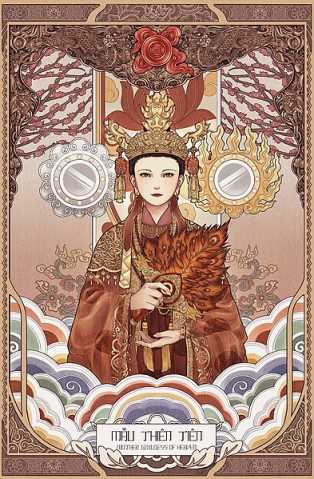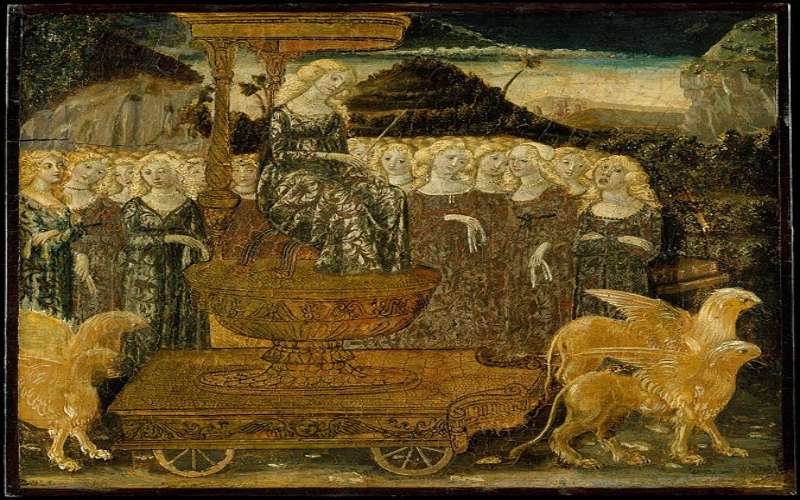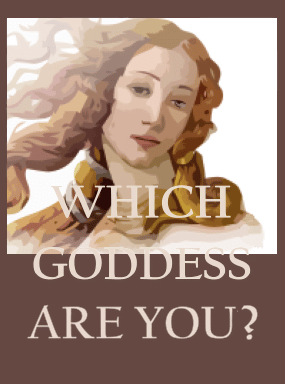There are thousands of world goddesses across different cultures that have similar beliefs and traditions. When comparing these goddesses, it is obvious how similar we are to each other. Regardless of our race, ethnicity, or social status. We came from one, and to one we shall return.
The Evolution of Goddesses
Goddesses and their stories have changed through time. When stories were retold through hundreds or even thousands of years, regional variations sometimes developed. At other times cultures collided and goddesses transformed or mixed based on new influences.

In the earliest times, there seem to have been Great Goddesses, such as the Earth Goddesses, who were all-encompassing in their roles and pretty “generic” in personality.
Next came goddesses who were rather “all-encompassing” but beginning to show some different sides to themselves. Portrayed as different aspects or stages of their identity, such as maiden/mother/crone.
Eventually, they diversified, creating a tremendous pantheon of major and minor goddesses. All with specific areas of responsibility and widely differentiated, rather “human”, personality traits. Which is how they came to be archetypes present in all cultures.
For example, the characteristics and stories of the Roman Minerva parallel those of the Greek goddess Athena. Both of them show great similarity to that of the earlier Egyptian goddess, Maat, for example.
Goddesses of the Goddess Gift
We have covered a great number of goddesses in-depth with their own articles. Those you can find if you follow the links in the list below or jump straight to the goddesses category.
World Goddesses Sorted by Responsibility/Association
Animals/Hunting
Anat (hunting; Canaanite)
Arachne (spiders; Greek)
Arduinna (hunting; Romano-Celtic)
Artemis (hunting; Greek)
Aspalis (hunting; Western Semitic)
Atalanta (hunting; Greek)
Diana (hunting; Roman)
Epona (horses; Celtic)
Hastseoltoi (hunting; Navajo)
Janguli (snakes; Buddhist)
Kebechet (snakes; Egyptian)
Neith (hunting; Egyptian)
Pakhet (hunting; Egyptian)
Rhiannon (horses; Celtic)
The Arts
Ame-No-Uzume (dancing; Shinto-Japanese)
Athena (inspiration; Greek)
Brigid (poetry; Celtic)
Ceridwen (inspiration; Celtic)
Harmonia (music; Greco-Roman)
Hi’aika (dancing; Hawaiian)
Iambe (poetry; Greek)
Laka (dancing; Polynesian)
Minerva (arts and crafts; Roman)
Mnemosyne (mother of Muses; Greek)
Muraja (music; Buddhist)
Muses (inspiration; Greek)
Rhiannon (inspiration; Celtic)
Saraswati (the arts; Hindu)
Childbirth/Midwifery
Anukis (Egyptian)
Artemis (Greek)
Aveta (Romano-Celtic)
Belet-Ili (Mesopotamian)
Brigid (Celtic)
Decima (Roman)
Diana (Roman)
Eileithyia (Greek)
Heket (Egyptian)
Hera (Greek)
Hesat (Egyptian)
Isara (Mesopotamian)
Nammu (Mesopotamian)
Renenutet (Egyptian)
Sasuratum (Western Semitic)
Taweret (Egyptian)
Teteoinnan-Toci (Aztec)
Thalna (Etruscan)
Xochiquetzal (Aztec)
Zarpanitum (Mesopotamian)
Creatrix
Antu (Mesopotamian)
Birrahgnooloo (Australian Aboriginal)
Cihuacoatl-Quilaztli (Aztec)
Danu (Celtic)
E Alom (Mayan)
Gunabibi (Australian Aboriginal)
Ishtar (Egyptian)
Iusaas (Egyptian)
Izanami-No-Kami (Shinto-Japanese)
Mawu (West African)
Nana Buruku (Yoruba)
Nammu (Mesopotamian)
Neith (Egyptian)
Nu Kua (Chinese)
Nut (Egyptian)
White Buffalo Calf Woman (Native American)
Yhi (Australian)
Crones/Wise Women
Destruction/Vengeance
Earth Mothers
Aeracura (Celtic)
Arianrhod (Celtic)
Bhumidevi (Hindu)
Changing Woman (Native American)
Chibirias (Mayan)
Cybele (Anatolian)
Danu (Celtic)
Demeter (Greek)
Vaishno Devi (Hindu)
Gaia (Greek)
Green Tara (Hindu)
Hu-Tu (Chinese)
Inanna (Sumerian)
Iord (Nordic)
Kali (Hindu)
Mari (Basque)
Mokos (Slavic)
Ninhursag (Mesopotamian)
Paca-Mama (Inca)
Parvati (Hindu)
Rhea (Cretan/Greek)
Sita Mata (Hindu)
Tellus (Roman)
Terra Mater (Roman)
Tlazolteotl (Aztec)
Touia Fatuna (Polynesian)
Fate/Destiny
Ananke (Greek)
Atropos (Greek)
Fortuna (Roman)
Laima (Latvian)
Manawat (Western Semitic)
Nortia (Etruscan)
Fertility
Abundantia (Roman)
Ahurani (Persian)
Ama-Arhus (Mesopotamian)
Amaunet (Egyptian)
Anaitis (Persian)
Anat (Canaanite)
Andarta (Celtic)
Asase Yaa (West African)
Ashtoreth (Philistine)
Astarte (Western Semitic)
Athirat (Western Semitic)
Baba (Mesopotamian)
Bast (Egyptian)
Brigid (Celtic)
Demeter (Greek)
Diana (Roman)
Disani (Afghan-Hindukush)
Estsanatlehi (Navajo)
Frigga (Norse/Germanic)
Inanna (Sumerian)
Ishtar (Mesopotamian)
Morrigan (Celtic)
Eostre (Anglo-Saxon)
Ọya – Yoruba Orisha
Quades
Nurturing Mothers
Aditi (Hindu)
Ammavaru (Hindu)
Anu (Celtic)
Artemis (Greek)
Asherah (Canaanite)
Atargatis (Assyrian/Semitic)
Aya (Mesopotamian)
Bhrkuti-Tara (Buddhist)
Brahmani (Hindu)
Ceres (Roman)
Cōātlīcue (Aztec)
Cybele (Anatolian)
Demeter (Greek)
Devaki (Hindu)
Danu (Celtic)
Frigga (Norse/Germanic)
Gaia (Greek)
Hathor (Egyptian)
Ishtar (Mesopotamian)
Isis (Egyptian)
Kundalini (Aztec)
Kybele (Phrygian)
Magna Mater (Roman)
Mata (Hindu)
Mut (Egyptian)
Ninhursaga (Mesopotamian)
Nut (Egyptian)
Parvati (Hindu)
White Buffalo Calf Woman (Native American)
Guardians/Protectors
Ankalamman (against demons; Hindu)
Anna Perenna (against famine; Roman)
Artemis (the vulnerable; Greek)
Bast (household; Egyptian)
Bes (women in labor; Egyptian)
Brigid (protects all who call; Celtic)
Diana (animals, virginity; Roman)
Green Tara (against physical and spiritual danger; Hindu)
Hecate (household, travelers, newborns; Greek)
Kuan Yin (against danger; Taoist)
Maharaksa (group of five guardian goddesses; Buddhist)
Mazu/Ma Tsu (seafaring; Chinese)
Securita (stability of empire; Roman)
Sekhmet (against disease; Egyptian)
Volumna (infants; Roman)
White Tara (life, peace; Hindu)
Wosret (protected Horus; Egyptian)
Healing/Health
Aja (Yoruba)
Athena (Greek)
Bast (Egyptian)
Brigid (Celtic)
Gula (Mesopotamian)
Hygieia (Greek)
Ishtar (Mesopotamian)
Isis (Egyptian)
Ixchel (Mayan)
Kamrusepa (Hittite)
Kuan Yin (Taoist)
Meditrina (Roman)
Psyche (Greek)
Salus (Roman)
Sequana (Romano-Celtic)
Sirona (Romano-Celtic)
Sulis (Romano-Celtic)
Thatmanitu (Western Semitic)
Tozi (Aztec)
Zapotlantenan (Aztec)
Humor/Fun/Pleasure
Justice
Magic
Maidens
Anath (Canaanite)
Blodeuwedd (Celtic)
Brigid (Celtic)
Ceridwen (Celtic)
Concordia (Roman)
Gerd (Norse)
Hestia (Greek)
Kore (Greek)
Persephone (Greek)
Urd (Norse)
Marriage/Love
Mermaids/Underwater
Atargatis (Assyrian/Semitic)
Aycayia (Caribbean)
Derketo (Greek)
Liban (Celtic)
Lorelei (Germanic)
Mami Wata (African)
Melusine (French)
Nereids (Greek)
Ningyo (Japanese)
Nix (Germanic)
Oceanids (Greek)
Ondine/Undine (French)
Sirens (Greek)
Moon
Arawa (East African)
Arianrhod (Celtic)
Artemis (Greek)
Caelestis (Carthaginian)
Ceridwen (Celtic)
Chang’e (Chinese)
Diana (Roman)
Gleti (West African)
Hecate (Greek)
Hina (Polynesian)
Ix Chel (Mayan)
Juno (Roman)
Kaumudi (Hindu)
Luna (Roman)
Mama-Kilya (Inca)
Marama (Polynesian)
Nikkal (Western Semitic)
Phoebe (Greek)
Rhiannon (Celtic)
Selene (Greek)
Tanit (Phoenician)
Oracles
Astarte (Western Semitic)
Freya (Norse/Germanic)
Morrigan (Celtic)
White Buffalo Calf Woman (Native American)
Adeona (children; Roman)
Alemona (unborn children; Roman)
Hecate (crossroads; Greek)
Patadharini (doorways, curtains; Buddhist)
Suleviae (crossroads; Romano-Celtic)
Rebirth/Renewal/Spring
Hera (Greek)
Inanna (Sumerian)
Isis (Egyptian)
Juno (Roman)
Ostara (Anglo-Saxon)
Persephone (Greek)
Prosperina (Roman)
Sexual Love/Beauty
Áine (Celtic)
Alpanu (Etruscan)
Anat (Canaanite)
Aphrodite (Greek)
Astarte (Canaanite)
Freya (Norse/Germanic)
Hathor (Egyptian)
Huitaca (Columbian)
Inanna (Sumerian)
Ishtar (Mesopotamian)
Lillith (Hebrew)
Oshun (Santeria)
Radha (Hindu)
Rati (Hindu)
Turan (Etruscan)
Venus (Roman)
Xochiquetzal (Aztec)
Sky/Stars/Heaven
Arundhati (Hindu)
Astlik (Armenian)
Coyolxauhqui (Aztec)
Eos (Indo-European)
Hathor (Egyptian)
Hera (Greek)
Inanna (Sumerian)
Inmar (Finno-Ugric)
Ishtar (Mesopotamian)
Juno (Roman)
Lilith (Sumerian)
Marici (Buddhist)
Mater Matuta (Italic)
Mawu (West African)
Naksatras (Hindu)
Nut (Egyptian)
Oya (Santeria)
Sophia (Gnostic)
Sothis (Egyptian)
Tara (Hindu)
Subconscious/Dreams
Astarte (Canannite)
Inanna (Sumerian)
Maat (Egyptian)
Nanshe (Mesopotamian)
Nephthys (Egyptian)
Persephone (Greek)
Psyche (Greek)
Sun/Light
Áine (Celtic)
Amaterasu (Shinto-Japanese)
Athena (Greek)
Bast (Egyptian)
Dipa (Buddhist)
Hathor (Egyptian)
Hine-Ata-Uira (Polynesian)
Kaumudi (Hindu)
Narisah (Manichaean)
Ningal (Mesopotamian)
Ostara (Anglo-Saxon)
Saule (Latvian)
Sophia (Gnostic)
Sul (Celtic)
Surya (Hindu)
Taditkara (Buddhist)
Tate Velika Vimali (Mesoamerican)
Tefnut (Egyptian)
Thesan (Etruscan)
Waka-Hiru-Me (Shinto-Japanese)
Wuriupranili (Australian Aboriginal)
Triple Goddesses
Brigid (Celtic)
Carmentes (Roman)
Changing Woman (Native American)
Diana Triformis (Celtic)
Fortunae Concordia/Salus/Pax (Roman)
Hecate (Greek)
Helice (Greek)
Inanna/Ereshkigal (Sumerian)
Kali (Hindu)
Moirai (Greek)
Morrigan (Celtic)
Norns Urd/Verdandi/Skuld (Old Norse)
Persephone/Demeter/Hecate (Greek)
The Three Zoryas (Russian)
Underworld/Death
Allatu (Western Semitic)
Alpanu (Etruscan)
Ammut (Egyptian)
Arsay (Western Semitic)
Ataecina (Romano-Iberian)
Belet-Seri (Mesopotamian)
Ereshkigal (Sumerian)
Hakea (Polynesian)
Hel (Norse/Germanic)
Hina (Hawaiian)
Hine-Nui-Te-Po (Polynesian)
Libitina (Roman)
Mictēcacihuātl (Aztec)
Nephthys (Egyptian)
Persephone (Greek)
Prosperina (Roman)
Rhiannon (Celtic)
Sedna (Inuit)
Sulis (Romano-Celtic)
Velu Mate (Latvian)
Yewa (Santeria Orisha)
Forests/Agriculture
Abnoba (forests; Romano-Celtic)
Anna Kuari (Indian)
Aranyani (Hindu)
Arduinna (forests; Romano-Celtic)
Ariadne (Greek)
Ashnan (Mesopotamian)
Ashratum (Western Semitic)
Bhumi Devata (Indian)
Centeocihuatl (maize; Aztec)
Ceres (Roman)
Demeter (Greek)
Flora (flowers; Roman)
Frigga (Norse/Germanic)
Gefjon (agriculture; Norse/Germanic)
Kore/Persephone (corn; Greek)
Mayahuel (Aztec)
Morrigan (Celtic)
Pomona (Roman)
Saraddevi (Buddhist)
Sif (Norse)
War
Anat (Canaanite)
Andrasta (Romano-Celtic)
Astarte (Western Semitic)
Athena (Greek)
Badb (Celtic)
Bellona (Roman)
Boadicea (British)
Durga (Hindu)
Freyja (Norse/Germanic)
Inanna (Sumerian)
Ishtar (Mesopotamian)
Korravai (Dravidian)
Minerva (Roman)
Morrigan (Celtic)
Nike (Greek)
Oya (Santeria)
Sekhmet (Egyptian)
Water/Rivers/Sea
Abnoba (rivers; Romano-Celtic)
Ame-No-Mi-Kumari-No-Kami (heavenly water divider; Shinto-Japanese)
Amphitrite (sea; Greek)
Anaulikutsai’x (rivers; Native American)
Arnemetia (water; Romano-Celtic)
Boann (rivers; Celtic)
Buk (rivers; Sudanese)
Chalchiuhtlicue (water; Aztec)
Coventina (water; Roman)
Danu (water; Celtic, Irish)
Djila’qons (sea; Native American)
Doris (sea; Greek)
Eurynome (sea; Greek)
Ganga (rivers; Hindu)
Harpina (rivers; Greek)
Immap Ukua (sea; Inuit)
Leukothea (sea; Greco-Roman)
Mama Qoca (sea; Inca)
Manannan (sea; Celtic)
Mazu (sea; Taoist)
Mizu-Ha-No-Me (Shinto-Japanese)
Sedna (deep sea; Inuit)
Thetis (rivers, sea; Greek)
Tin Hau (water; Taoist)
Yemaya (Santeria)
Yemoja (Yoruba)
Wealth/Fortune/Luck
Wisdom
Asherah (Canaanite)
Athena (Greek)
Cailleach (Celtic)
Ceridwen (Celtic)
Hecate (Greek)
Ishtar (Mesopotamian)
Isis (Egyptian)
Kuan Yin (Taoist)
Lilith (Sumerian)
Metis (Greek)
Minerva (Roman)
Nissaba (Mesopotamian)
Saraswati (Hindu)
Shekinah (Hebrew)
Sophia (Gnostic)
Tara (Hindu)
Vajrayogini (Buddhist)
Other Goddesses
If you enjoyed this post we are sure you will enjoy getting to know some of the other goddesses we also write about. You can find the complete list of goddesses sorted across regions and religions here.
Featured Image Credit: Francesco di Giorgio, CC0, via Wikimedia Commons


